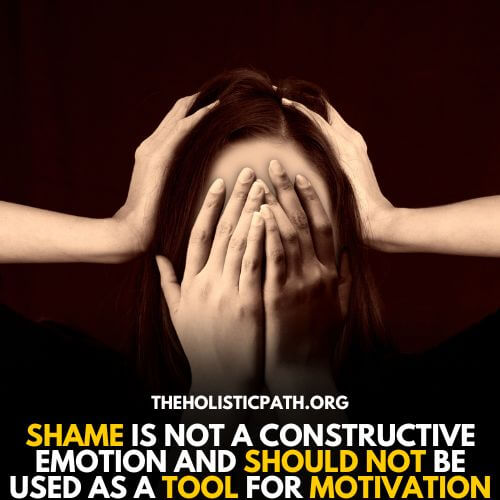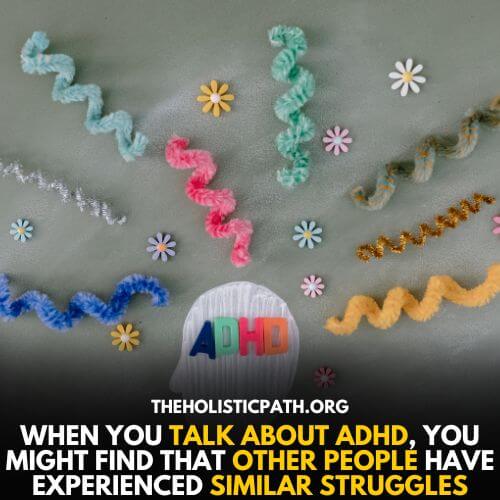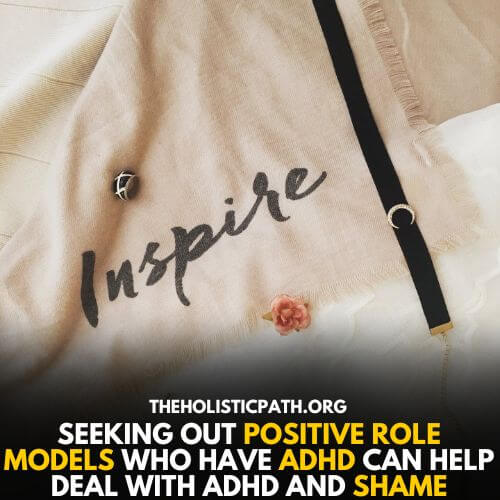ADHD and shame are often thought of as two separate things, but they can actually be very closely related. For many people with ADHD, shame is a major part of their lives.
They may feel embarrassed or ashamed of their ADHD symptoms, or they may feel like they’re not good enough because they can’t focus or stay organized. This can lead to a spiral of negative thinking that can be very hard to break out of.
However, it’s important to remember that ADHD is a real medical condition that is out of your control. There is nothing to be ashamed of. If you’re struggling with ADHD and shame then read on…
Understanding ADHD
ADHD stands for Attention Deficit Hyperactivity Disorder. It is a mental disorder that is characterized by problems with focus, hyperactivity, and impulsiveness. ADHD can make it difficult for people to succeed in school, work, and relationships.
Many people with ADHD also have other mental health disorders, such as anxiety or depression. ADHD is most commonly diagnosed in children, but it can also affect adults.
There is no single cause of ADHD, but it is thought to be caused by a combination of genetic and environmental factors.
What Is Shame
Shame is an intense feeling of humiliation, mortification, or distress caused by real or imagined exposure to something private or embarrassing. Shame can be caused because of ADHD when people with the disorder struggle to meet the expectations of others and/or themselves.
Shame may also result from negative feedback or criticism, whether it’s warranted or not. Shame can lead to withdrawal, isolation, and avoidance behaviors.

It’s important to understand shame and its effects in order to address it effectively. Shame is not a constructive emotion and should not be used as a tool for motivation.
ADHD and Shame: A Complex Relationship
ADHD and shame have a complex relationship. ADHD can make it difficult for people to focus and stay on task, which can lead to feeling ashamed. People with ADHD may feel like they’re not living up to their potential or that they’re not as good as other people.
Shame can also be triggered by the way ADHD symptoms present themselves. For example, someone with ADHD might impulsively blurt out something without thinking first, which can lead to feeling embarrassed or humiliated.
Hate is also a common emotion for people with ADHD. They may hate themselves for not being able to focus or control their ADHD symptoms. And they may also hate how ADHD has affected their life, such as causing them to lose a job or damaging their relationships.
The bottom line is that ADHD and shame are interconnected. Shame can be a result of ADHD, and ADHD can be the result of shame.
Shame can also amplify the symptoms of ADHD and make them more debilitating. If you have ADHD, it’s important to understand the role that shame plays in your life and seek out treatment if necessary.
The Role of Shame in ADHD
ADHD and shame are often two sides of the same coin. ADHD can lead to negative responses from others, which can cause you to form more negative beliefs about yourself.
These negative beliefs can lead to additional feelings of shame, and the ADHD-shame cycle can become a self-fulfilling prophecy. The stigma associated with ADHD can also contribute to feelings of shame.
Individuals with ADHD may feel like they are not good enough or that they are not living up to their potential. They may feel like they are disappointing their families or that they are not measuring up to their peers.
These feelings of shame can be debilitating and can prevent individuals with ADHD from seeking treatment or support.
ADHD Shame Spiral
A shame spiral is when someone feels ashamed of themselves and then keeps dwelling on those thoughts, which makes them feel even worse. It’s a negative feedback loop that can be hard to break out of. Shame spirals are often triggered by small events, like messing up at work or saying something embarrassing.
When ADHD and shame team up, they can create a “shame spiral” that’s hard to break free from.
Shame spirals usually start with a small mistake or shortcoming. For someone with ADHD, this could be forgetting an important detail, losing track of time, or making an impulsive decision.
The ADHDer then berates themselves for their mistake, leading to feelings of inadequacy and worthlessness. This sets off a chain reaction of negative thoughts and emotions, which can quickly spiral out of control.
The end result is often isolation, depression, and anxiety.
How ADHD May Cause Shame
Many people with ADHD feel a sense of shame because of their disorder. Here are five ways that ADHD may cause shame:
- ADHD may cause shame in children who have trouble paying attention in class and struggle to keep up with their peers.
- ADHD may cause shame in teenagers who feel like they are “falling behind” and are unable to live up to the standards of their peers.
- ADHD may cause shame in adults who feel like they are not able to “keep up” with everyone else and feel like a failure because of it.
- ADHD may cause shame in parents who feel like they are not able to properly care for and provide for their children because of the disorder.
- ADHD may cause shame in families who have members with ADHD because they feel like they are unable to cope with or manage the disorder effectively.
How Shame May Affect ADHD
Shame is a funny thing. It’s something that we all feel at one time or another, yet it’s something that we don’t often talk about. When it comes to ADHD, shame can be a major barrier to healing. Here’s why:
- Shame creates a sense of isolation. When we feel ashamed of something, we tend to keep it to ourselves. This isolation can make it difficult to reach out for help, which is essential for healing ADHD.
- Shame can prevent us from taking responsibility for our actions. If we’re ashamed of our ADHD, we may be hesitant to take responsibility for our behavior. This can make it difficult to make changes that are necessary for healing.
- Shame can lead to negative self-talk. If we’re constantly berating ourselves for our ADHD symptoms, it’s only going to make things worse. Negative self-talk can lead to low self-esteem and further isolation.
- Shame can lead to secrecy and isolation, which can prevent people from getting the help they need for ADHD.
- Shame can also lead to self-judgment and a feeling of not being good enough, which can make it more difficult to manage ADHD symptoms.
- Shame can cause people to feel like they are defective or broken, which can add to the challenges of living with ADHD.
- Feeling ashamed of one’s ADHD can lead to a lack of self-esteem and a decreased sense of self-worth.
The bottom line is that shame is a normal part of life, but it’s important to recognize how it might be affecting your healing process
10 Ways To Easily Manage ADHD and Shame
ADHD and shame often go hand-in-hand. ADHD can lead to feelings of shame, and shame can make ADHD symptoms worse. If you’re struggling with ADHD and shame, you’re not alone. Here are 10 tips for managing ADHD and shame:
1. Talk About It
Shame can make ADHD feel like a dirty secret that you’re ashamed of. But talking about it can help. When you talk about ADHD, it can help to:
- Hear yourself say it out loud.
- Normalize it.
- Put it into perspective.
- Accept it.
- Release some of the shame attached to it.
When you talk about ADHD, you might find that other people have experienced similar struggles. Or you might realize that your ADHD isn’t as bad as you thought it was.

Talking about ADHD can also help you to understand it better and to find ways to work with it instead of against it. So don’t be afraid to talk about ADHD, because doing so can help you to deal with ADHD and shame.
2. Seek Professional Help
If ADHD is not effectively managed, these negative emotions can spiral out of control, leading to depression, anxiety, and even substance abuse. Seeking professional help is an important step in managing ADHD and preventing shame from taking over.
A therapist can provide support and guidance in dealing with ADHD symptoms. They can also teach coping mechanisms for dealing with overwhelming emotions. In addition, therapy can help to identify any underlying issues that may be contributing to feelings of shame.
By seeking professional help, individuals with ADHD can begin to take control of their condition and start living fulfilling lives.
3. Join A Support Group
ADHD and shame can be a frustrating and exhausting combination. ADHD makes it difficult to focus and stay on task, while shame can make it hard to believe in yourself or ask for help.
But you don’t have to go through this alone. There are many support groups available that can help you deal with ADHD and shame. Here are just a few of the ways that joining a support group can help:
- You’ll learn that you’re not alone. ADHD is a common condition, and many people struggle with it. Hearing other people’s stories can help you feel less alone and more understood.
- You’ll hear about different strategies for dealing with ADHD. There’s no one-size-fits-all solution for ADHD, but hearing about what has worked for others can give you some ideas for how to better manage your own symptoms.
- You’ll have the opportunity to share your own experiences. Talking about ADHD and shame can be difficult, but it can also be cathartic. Sharing your story with others who understand what you’re going through can help you feel less alone and more empowered.
If you’re struggling with ADHD and shame, consider joining a support group. It could be just what you need to start feeling better.
4. Educate Yourself And Your Loved Ones About ADHD
By educating yourself and your loved ones about ADHD, you can help to remove the stigma and foster a more understanding and supportive environment. Here are some ways that education can help:
- It can help you to understand your ADHD better. Many people with ADHD feel ashamed because they don’t understand their condition. If you educate yourself about ADHD, you will be better equipped to manage your symptoms and understand your condition. This can help to reduce feelings of shame.
- It can help you to build a support network. When you educate yourself about ADHD, you will be able to find other people who are in similar situations. This can create a supportive network that can offer understanding and advice. This network can be invaluable in helping you to cope with ADHD and shame.
- It can help you to challenge negative beliefs about ADHD. There are many myths and misconceptions about ADHD. By educating yourself about the condition, you will be able to challenge these negative beliefs and start to see ADHD in a more positive light. This can help to reduce feelings of shame associated with the condition.
5. Identify Your Triggers
One important step for dealing with ADHD and shame is to identify your triggers. Once you know what sets off your ADHD symptoms or makes you feel ashamed, you can work on avoiding or managing those triggers.
For example, if you know that clutter makes your ADHD symptoms worse, you can try to keep your environment more organized. Or, if you know that being around certain people makes you feel ashamed, you can try to limit your time with those people or set boundaries with them.
Identifying your triggers is an important step in managing ADHD and shame.
6. Find Positive Outlets For Your Energy And Talents
Finding positive outlets for your energy and talents can help you to cope with ADHD and shame. For example, participating in sports or other forms of exercise can help you to focus your energy in a positive way.
Additionally, pursuing creative hobbies such as painting or writing can help you to express yourself and feel proud of your accomplishments. Ultimately, ADHD does not have to define you or your future.
By finding positive outlets for your energy and talents, you can begin to build a life that is fulfilling and rewarding.
7. Practice Self-Compassion And Positive Self Talk
Self-compassion is the ability to be kind and understanding towards yourself, even when you make mistakes. It’s about recognizing that everyone makes mistakes and that we all have flaws. When you’re able to be compassionate towards yourself, it’s easier to accept your ADHD and move on from mistakes.
Positive self-talk is another way to help deal with ADHD and shame. This is when you talk to yourself in a positive and encouraging way.
For example, instead of saying “I can’t do this” or “I’m so stupid,” you would say “I can do this” or “I’m smart and capable.” Positive self-talk can help to boost your confidence and make it easier to manage ADHD symptoms.
If you’re struggling with ADHD and shame, try practicing self-compassion and positive self-talk. These two strategies can help you to feel better about yourself and your ADHD.
8. Practice Mindfulness Or Meditation
Mindfulness involves being present in the moment and observing your thoughts and feelings without judgment. This can help you to become more aware of your ADHD symptoms and triggers and allows you to manage them more effectively.
Meditation can also help to focus your mind and boost your concentration levels. In addition, both mindfulness and meditation can help to reduce stress and anxiety, which can be helpful in managing ADHD symptoms.
Practicing mindfulness or meditation on a regular basis can be helpful in dealing with ADHD and shame. If you have ADHD and shame, consider giving mindfulness or meditation a try. You may find that it helps you to better manage your ADHD symptoms and feel better about yourself.
9. Make Time Each Day For Yourself To Relax And Rejuvenate
ADHD can be a frustrating and overwhelming condition, both for those who live with it and for their loved ones. It can be difficult to keep up with the demands of daily life, let alone find time to relax and rejuvenate.
However, making time each day for yourself can help to ease ADHD symptoms and reduce shame. ADHD can lead to feelings of inadequacy and failure. But taking time each day to nurture yourself can help to boost your self-esteem and confidence.
When you make time for yourself, you are telling yourself that you are worthy of care and that you deserve to feel good. In addition, relaxation activities can help to improve focus and concentration.
10. Seek Out Positive Role Models Who Have ADHD
Too often, people with ADHD are made to feel like they’re somehow lesser because of their condition. But it doesn’t have to be this way. There are plenty of successful people with ADHD who have overcome the odds to achieve great things.
Seeking out positive role models who have ADHD can help deal with ADHD and shame. Seeing proof that ADHD doesn’t have to be a barrier to success can help people with ADHD feel more hopeful and motivated.

It can also remind them that they’re not alone in their struggle.
There are many famous people with ADHD who have gone on to lead successful lives, including Michael Phelps, Justin Timberlake, and Howie Mandel. Learning about their journeys can inspire others with ADHD to keep pushing forward, even when things seem tough.
Conclusion
ADHD can be a difficult condition to live with, and it can be especially difficult when it’s accompanied by feelings of shame. It’s important to remember that ADHD is a real medical condition, and it’s nothing to be ashamed of. If you’re struggling with ADHD, don’t hesitate to reach out for help.
References
Goodman, D. W., & Thase, M. E. (2009b). Recognizing ADHD in Adults with Comorbid Mood Disorders: Implications for Identification and Management. Postgraduate Medicine, 121(5), 31–41. https://doi.org/10.3810/pgm.2009.09.2049
Mueller, A. K., Fuermaier, A. B. M., Koerts, J., & Tucha, L. (2012). Stigma in attention deficit hyperactivity disorder. ADHD Attention Deficit and Hyperactivity Disorders, 4(3), 101–114. https://doi.org/10.1007/s12402-012-0085-3
